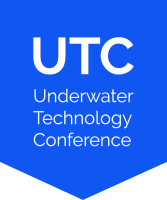The 330 meter long Egina FPSO started to produce offshore Nigeria last December 2018. During the Egina development phase, Total successfully used
Additive Manufacturing (3D-printing) to provide a subsea tool within seven days and avoid a shut-down of the nearby producing Akpo FPSO.
The Egina Gas Export Line was to be tied back to the existing Akpo Gas Export line when it was found out that the connection pressure cap located on the
subsea connection module was blocked and could not be removed. This was due to a blockage by gas hydrates. It was decided to remove all the nuts from
the plunger flange, remove the flange and introduce a “methanol soaking tool” to get rid of the hydrates. The external shape of the tool was designed locally
and then digitally sent to TOTAL 3D-printing center. The tool design was reviewed to optimize the shape of the methanol channels within the tool. A
so-called “topological optimization” was performed to reduce the weight of the tool. A stress and strain analysis was conducted to make sure the tool would
sustain deep-water injection conditions. The tool was then printed using a powder bed laser sintering technology. The retained material was polyamide-12.
The 32cmx32cm tool was printed in 37 hours and weigths 11kg (ca. half of a machined tool). The tool was sent within 48hours to Port Harcourt and run
subsea in 1250m water depth. After 2 hours of continuous soaking, the pressure connecting cap was successfully freed from hydrates.

